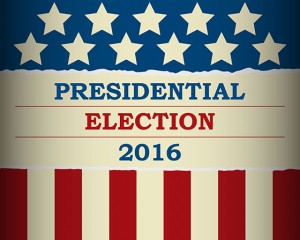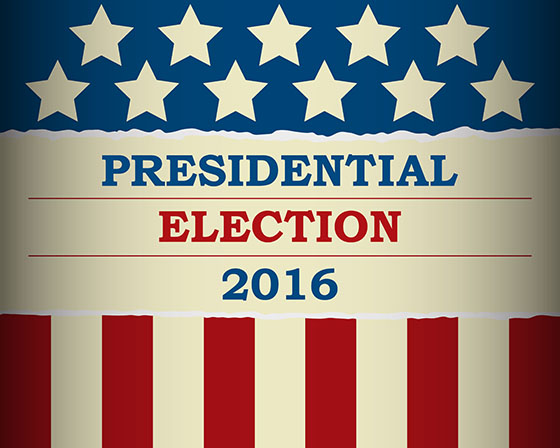The 2016 presidential election is strange has been one for the record books and there's still 17 days to go. One of the many unprecedented aspects of this campaign that most of us simply take for granted is the huge influence of social media. In addition to the millions of comments and links to stories posted every day, the candidates themselves are using social media daily to rally their supporters, clarify their positions, solicit donations, and deflect criticism. Let's look at some of the ways that social media is impacting the 2016 presidential election.
How The Candidates Are Using Social Media
 Both the Hillary Clinton and Donald Trump campaigns make extensive use of social media, especially Twitter and Facebook. While this seems like a normal and inevitable part of the election, in reality, this is a relatively new phenomenon. The main reason for this is more people than ever are using social media. According to the Pew Research Center, there are almost twice as many social media users now than during the 2012 election.
Both the Hillary Clinton and Donald Trump campaigns make extensive use of social media, especially Twitter and Facebook. While this seems like a normal and inevitable part of the election, in reality, this is a relatively new phenomenon. The main reason for this is more people than ever are using social media. According to the Pew Research Center, there are almost twice as many social media users now than during the 2012 election.
One notable aspect of this presidential campaign is both major candidates are widely disliked. This means many people will be voting for the candidate they perceive as the lesser of two evils.
Social media both helps and harms political candidates. When something controversial occurs, whether it's one of Trump's statements or news about Clinton's email, it's all over social media within minutes. We've seen fallout from Trump's rants on multiple occasions. Yet it's difficult to draw any firm conclusions about the election by looking at social media. Trump has more followers, likes, and shares on Twitter, Facebook, and Instagram than Clinton. Clinton, on the other hand, is ahead of Trump on YouTube, Snapchat and LinkedIn. How these metrics will translate into actual votes is yet to be seen.
Social Media Strategies
Just as Clinton and Trump disagree on most every political issue, they have their own social media styles. Donald Trump is notorious for his brash, outspoken rants on Twitter. While some observers believe this is harming his campaign, it's also possible this is part of his strategy. Many Trump supporters appreciate their candidate's outspoken style, even if some of his more outrageous remarks backfire, at least for some period of time.
Clinton, on the other hand, has a more rational, level-headed presence on Twitter and other social media sites. This doesn't mean, however, her approach is passive or non-confrontational. In fact, Clinton takes every opportunity to chastise Trump and use his own words as ammunition. For example, Trump was widely criticized for remarks about women that he dismissed as “locker room talk.” Hillary Clinton tweeted Trump’s attitude proves he's not really sorry for his comments.
What Is The Real Impact Of Social Media On The Election?
It's difficult to measure the actual influence of social media on the election. According to eZanga, a company specializing in detected fraud on digital media, more than a third of both Clinton's and Trump's Twitter followers are fake. Fraud is rampant on social media and tends to inflate numbers such as memberships, customers, and, in this case, political supporters.
On the one hand, social media keeps everyone up to date on the very latest political news and candidates' statements. On the other hand, social media can also be seen contributing to the polarization of America's citizens. People who follow each candidate are likely to have their opinions reinforced on a daily basis. On Facebook, where longer remarks are possible, people see links and supporting comments from friends, who, in most cases, share their opinions.
It remains to be seen whether social media will sway the election one way or the other. What's beyond question is the constant back-and-forth exchanges on Twitter and other social media make the 2016 election lively and controversial.
If you need help with your own email, inbound or social media marketing, contact us today.








